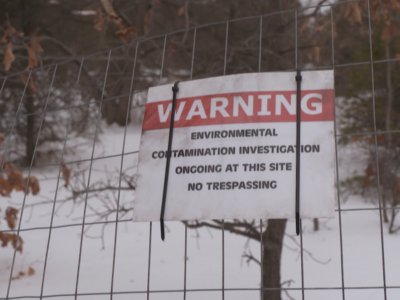
By Lester Graham, Michigan Radio
The Great Lakes News Collaborative includes Bridge Michigan; Circle of Blue; Great Lakes Now at Detroit Public Television; and Michigan Radio, Michigan’s NPR News Leader; who work together to bring audiences news and information about the impact of climate change, pollution, and aging infrastructure on the Great Lakes and drinking water. This independent journalism is supported by the Charles Stewart Mott Foundation. Find all the work HERE.
The U.S. Environmental Protection Agency (U.S. EPA) is proposing new federal baseline water quality standards for Native American tribes that do not meet the basic requirements of the Clean Water Act.
It would establish water protections for more than 250 tribes. Forty seven tribes already have water quality standards. The U.S. EPA says its proposal would mean nearly two million acres of lakes, reservoirs and other waters within reservations would be protected.
Twenty tribes in the Great Lakes region — 12 of them in Michigan — could be affected by the proposal. The impact of the EPA proposal on Native American reservations in Michigan is unclear.
The EPA says it will deal with each tribe on a case by case basis. In a news release, EPA Administrator Michael Regan said, “…all people deserve access to clean, safe water,” calling the proposal a step forward in work with tribal governments to ensure water bodies are protected.
The National Tribal Water Council supports the EPA proposal.
Although, some of its leaders say most tribes don’t have the programs and don’t have the funding to meet the standards. They say the federal government should consult with each tribe and support them with the money needed for implementation and enforcement.
Catch more news at Great Lakes Now:
Once beset by industrial pollution, Rouge River on a slow path to recovery
Forest to MI Faucet: Using trees to keep water sources pristine
Featured image:The impact of the U.S. EPA proposal on Native American reservations in Michigan is uncertain. Twelve Michigan tribes could be affected by the proposal. (Lester Graham/Michigan Radio)




